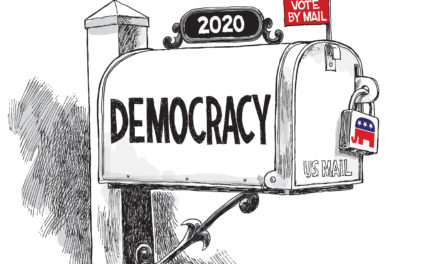Forgive the skepticism, but the premature announcement by the former president of the Memphis Music Foundation about the interest of an Australian film production company in opening a regional operation in Memphis feels awfully familiar.
As in the past, it seems like nothing so much as something to shift the conversation from his recent intemperate comments to the Memphis Flyer and criticisms that he’s gotten in the wake of his resignation from places as varied as The Commercial Appeal’s editorial page to club musicians.
While Rey Flemings wouldn’t spell out the amount of public funding to be requested by Village Roadshow Pictures, his comment that it’s not much “in the world of corporate incentives” seemed ominous enough, particularly in light of a past reliance to throw money at big ideas.
The Right Tone
We think Shelby County Board of Commissioners Joe Ford and interim coordinator of the Memphis and Shelby County Office of Economic Development set the right tone of caution, with him pointing out the county’s perilous financial health and her responding in measured tones about wanting to “look at the numbers and review the specifics before we even discuss any kind of commitment.”
Actually, that’s a tone that’s been struck by government economic development officials more and more in recent months and (knock on wood) it’s a trend worth continuing.
Although city and county government have still not taken action to reform the disastrous PILOT (Payment-in-lieu-of-tax) program that gives away $60 million a year in taxes, local government does seem to have begun to target the incentives more strategically. Whether by design or coincidence, recent weeks have seen better projects getting tax freezes, such as a steel mill and a national headquarters. While there’s still room for argument on the amounts being ponied up for these companies, at least these are the kinds of employers that deserve special attention.
Finally Action
Hopefully, within the next 30 days, Memphis City Council will finally take its long talked about action to make the PILOT program a true targeted incentive rather than an entitlement. After all, Memphis and Shelby County Governments have had recommendations from its own consultants for nine months that called on the Memphis and Shelby County Industrial Development Board and the Center City Revenue Finance Corporation to revamp its policies and adopt better rules for tax freezes.
If that wasn’t enough of a wake-up call, there was also a damning academic study by the Mercatus Center which trashed the PILOT program as it is currently administered, and even the always business-friendly Forbes magazine ridiculed local tax freeze policies.
It seems evident at this point that Memphis City Council will take some kind of action, but look for the affected agencies to continue their mantra about how they can’t do anything to change the programs without approval also by the Shelby County Board of Commissioners.
Show Some Initiative
There’s some truth to this since both the IDB and the CCRFC are joint city-county agencies, and because tradition has been that joint action was needed for change. But it’s just as logical that one body can make changes, or at least place the program in suspended animation.
There’s even more truth to the fact that the boards could have already shown some initiative to restore public confidence in PILOT policies. They’ve been stuck in a strange state of denial, acting as if the momentum for change would simply go away if they ignored it (or more to the point thought developers would make sure the tax freeze policies weren’t changed).
If City Council takes action that approximates its forceful rhetoric, the agencies shouldn’t wait for county action. They should move immediately to change their PILOT policies. But first, it will take a shift in attitude, because at times when you listen to IDB and Center City defenses of the tax giveaway policies, you get the impression that it’s their money, not local taxpayers.
Loud And Clear
In the end, that’s the message that Memphis City Council seems intent on sending the loudest. For too long, these tax-waiving boards have turned a deaf ear to concerns from local legislators and in fact treated them dismissively when they tried to discuss problems in any detail.
We say all this to say that whatever idea is being bandied about for a movie production’s regional (and we emphasize regional) center could be a positive addition to the local economic development scene. That said, however, if the incentives to be sought by the film producer calls for direct public funding, and not just tax waivers, it should already be a deal-killer. Local government can’t get into the direct funding of companies, regardless of how sexy they may be.
Maybe this is real. Maybe it isn’t. Based on previous behavior by the Music Foundation, this announcement feels an awful lot like a way to cope with recent negative media coverage.
We hope it all works out, and we hope even more that it makes good sense for local taxpayers. That’s why we’d be especially interested in knowing what Linn Sitler, president of the Memphis and Shelby County Film Commission, thinks about it. No one has been a better steward of public money, nor has anyone produced greater return on a very limited investment. She’s the person that understands the film business best, and for that reason, we’d like to know what she’s recommending.



